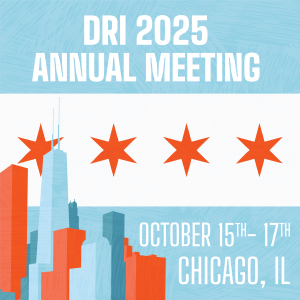Life, Health and Disability News
Fourth Circuit Holds ERISA Does Not Preclude Multiemployer Benefit Plans From Pursuing Delinquent Contributions From An Employer Arising From Settlement Agreements Between An Employer And A Local Union, And Burden Shifts To Employer To Prove Unreasonableness Of Damages Sought
By Scott M. Trager
In Sheet Metal Workers’ Health & Welfare Fund of North Carolina v. Stromberg Metal Works, Inc. No. 21-2134, 2024 WL 4377657 (4th Cir. Oct. 3, 2024), eight multiemployer benefit plan plaintiffs (the “Funds”), sought to recover delinquent contributions for health, pension, and other sheet metal work benefits from defendant, Stromberg Metal Works, Inc. (“Stromberg”). The Funds alleged that Stromberg contravened § 515 of the Employee Retirement Income Security Act of 1974 (“ERISA”), 29 U.S.C. § 1145, by underpaying contributions owed to the Funds pursuant to a collective bargaining agreement (“CBA”) with the Sheet Metal, Air, Rail and Transportation Union (the “SMART Union”). The allegedly delinquent contributions related to temporary sheet metal workers hired by Stromberg through staffing agencies between 2015 and 2019.
The case, initially filed in the United States District Court for the Middle District of Tennessee, was transferred to the Eastern District of North Carolina. The district court denied Stromberg’s motion for summary judgment, granted the Funds’ cross-motion for summary judgment, and awarded the Funds more than $823,000 in delinquent contributions and more than $430,000 in liquidated damages and interest on the delinquency. Stromberg appealed to the United States Court of Appeals for the Fourth Circuit, challenging the district court’s rulings as to both liability and damages.
The Fourth Circuit affirmed the district court’s liability ruling and agreed that a 2019 settlement between Stromberg and Local 5 of the SMART Union, which was not binding on the Funds, did not preclude the Funds from seeking delinquent contributions. The court, citing Board of Trustees, Sheet Metal Workers’ Nat’l Pension Fund v. Four-C-Aire, Inc., 929 F.3d 135, 140 (4th Cir. 2019), recognized that multiemployer benefit plans do not have the same duties and interests as local labor unions or employers, and ERISA § 515 leaves for separate litigation any matters between the employer and the union arising from their individual CBA, to which the plan was not a party. An employer is not, under ERISA § 515, permitted to raise defenses attempting to show that a union and employer agreed to terms different from those set forth in a CBA. The court further, citing International Painters & Allied Trades Indus. Pension Fund v. Madison Coatings Co., Case No. SAG-17-1559, 2019 WL 5625759 (D. Md. Oct. 31, 2019), found that settlement agreements between an employer and pension funds associated with local unions did not preclude other multiemployer benefit plans from pursuing delinquent contributions from the employer under ERISA § 515. Accordingly, the Funds were permitted to pursue unpaid contributions from Stromberg, irrespective of any agreement Stromberg may have reached with the SMART Union.
While the court also largely agreed with the district court’s damages ruling, it vacated that ruling and remanded for further proceedings on certain damages-related issues. The court recognized decisions from other courts of appeals concluding that, where a plaintiff benefit fund has demonstrated that the defendant employer failed both to pay contributions owed and to maintain pertinent records, the burden shifts to the employer to prove the unreasonableness of the damages sought. To the extent the defendant employer is unable to do so, the plaintiff fund is entitled to an award of damages in an amount approximated as a matter of just and reasonable inference. The court found the reasoning of Anderson v. Mt. Clemens Pottery Co. 328 U.S. 680 (1946) (finding a similar recordkeeping requirement under the Fair Labor Standards Act of 1938), superseded by statute on other grounds, applied with equal force to cases arising under ERISA and endorsed the burden-shifting approach adopted therein.
Although the Fourth Circuit determined, as the district court properly recognized, Stromberg failed to proffer specific, documentary evidence that would be sufficient to satisfy its ultimate burden of proving the unreasonableness of the Funds’ damages approximation, it also held Stromberg was not yet required to do so; rather, Stromberg need only point to enough evidence to cast some doubt on the accuracy of the Funds’ damages approximation, and it had done so by way of evidence showing computational and methodological errors in the Funds’ third-party audit and application of the CBA’s 2-to-1 staffing ratio. Therefore, while the court concluded that the Funds were entitled to rely on the CBA’s default ratio to approximate damages, it also recognized that Stromberg was entitled to challenge the accuracy and reasonableness of the Funds’ approximation and proferred sufficient evidence to survive the Funds’ motion for summary judgment. Accordingly, the Fourth Circuit vacated the district court’s award of summary judgment to the Funds on their claim for damages in the amount requested and remanded for further proceedings regarding the adequately disputed damages issue.
 Scott M. Trager’s practice at Funk & Bolton covers a broad spectrum of insurance litigation matters in the state and federal courts of Maryland and the District of Columbia, the Maryland Insurance Administration, and the Maryland Office of Administrative Hearings. In partnership with his clients, he meticulously and strategically defends and litigates life, health, and disability insurance claims (ERISA and non-ERISA) and handles administrative claims before insurance regulators. He also assists insurers with pursuing claims for rescission and interpleader.
Scott M. Trager’s practice at Funk & Bolton covers a broad spectrum of insurance litigation matters in the state and federal courts of Maryland and the District of Columbia, the Maryland Insurance Administration, and the Maryland Office of Administrative Hearings. In partnership with his clients, he meticulously and strategically defends and litigates life, health, and disability insurance claims (ERISA and non-ERISA) and handles administrative claims before insurance regulators. He also assists insurers with pursuing claims for rescission and interpleader.
Interested in joining the Life, Health and Disability Committee? Click here for more information.
Print this section
Print the newsletter
Young Lawyers: Raising the Bar
A New Year Ahead
By David C. Vaughn IV
With the Annual Meeting in Seattle now in the past, I am grateful for another successful year of DRI seminars and fly-in meetings. Miami, Nashville, and Seattle each hosted outstanding Young Lawyer events, and Young Lawyer Committee (YLC) members who contributed to these events deserve praise for all their hard work.
With a new year ahead, our YLC committee has welcomed both new and returning members into leadership roles. Some were elevated to Committee Chairs, getting the opportunity to show the ropes to new committee members. As young lawyers, we understand the delicate balance between our demanding personal and professional lives. This makes the dedication of those who go above and beyond to ensure their committees run smoothly all the more commendable.
These roles are more than just titles—they're opportunities to build trust, which is the foundation of our profession. Our profession is built on trust—trust with your colleagues, clients, firm, opposing counsel, and judge. Trust is built by doing honest legal work and following through on commitments. Given that we are all balancing those commitments, your YLC committee members will take note of the hard work done by fellow committee members.
DRI offers every member the chance to contribute meaningfully and, in doing so, to enhance their professional reputation. For young lawyers especially, these contributions are invaluable steps toward establishing your reputation.
As we embark on another year of YLC, I encourage our new members to seize the opportunities before them and follow through on their commitments. There is room for everyone—even if your time commitments are limited. If you weren’t selected for a position or did not apply but are interested in getting involved, I invite you to contact me at dvaughn@bakersterchi.com. We are always happy to match motivated individuals with roles that suit their interests.
I look forward to a successful year with DRI and returning to Chicago for Fly-In, where we will continue building on the strong professional relationships we’ve fostered. With 2025 on the horizon, I am confident it will be one of our best years yet!
 David C. Vaughn IV is an associate at Baker Sterchi Cowden & Rice in St. Louis. Baker Sterchi has a broad litigation practice, representing local, regional, and global conglomerates in claims ranging from routine to complex. Collectively, the Baker Sterchi team of attorneys has tried more than 1,000 cases in state and federal courts nationwide. David graduated cum laude from Washington University School of Law in St. Louis, and he specializes in defending physicians, hospitals, and other medical professionals in medical malpractice claims.
David C. Vaughn IV is an associate at Baker Sterchi Cowden & Rice in St. Louis. Baker Sterchi has a broad litigation practice, representing local, regional, and global conglomerates in claims ranging from routine to complex. Collectively, the Baker Sterchi team of attorneys has tried more than 1,000 cases in state and federal courts nationwide. David graduated cum laude from Washington University School of Law in St. Louis, and he specializes in defending physicians, hospitals, and other medical professionals in medical malpractice claims.
From the Past Chairs of the Young Lawyers Brief Case Committee
By Brianna Weis
Thank you to all our writers and contributors for the 2023-2024 Editions of the Brief Case!
Special thanks to the Brief Case Committee for your editorial contributions this year!
Our goal is to publish as many young lawyers as possible. If you are looking for publication opportunities in the upcoming year please reach out to:
Kevin Kelly at kkelly@chartwelllaw.com and Ryan Forgione at rforgione@connkavanaugh.com.
For additional publication opportunities and questions, please reach out to our current publication chairs:
Corey Bauer at bauerca@hh-law.com and Briana Combs at bcombs@plunkettcooney.com.
 Brianna Weis is a senior associate at Hartline Barger in Dallas, Texas. Her primary practice areas are personal injury defense and construction defect defense. She is excited to serve on the Young Lawyer’s Seminar Committee this coming year.
Brianna Weis is a senior associate at Hartline Barger in Dallas, Texas. Her primary practice areas are personal injury defense and construction defect defense. She is excited to serve on the Young Lawyer’s Seminar Committee this coming year.
Interested in joining the Young Lawyers Committee? Click here for more information.
Construction Law: The Critical Path
Should They Stay or Should They Go? SCOTUS Resolves the Circuit “Clash” on the Fate of Arbitrable Claims
By Rosanna L. Ameriguian
A new construction dispute comes into the office, and the contract between the parties contains an arbitration clause that appears to apply to the allegations in the pleadings. You seek to compel arbitration pursuant to the contract arguing that the district court does not have jurisdiction. Does the court dismiss the action or stay the proceedings during the pendency of the arbitration?
The circuit courts of appeals began to develop a split on this question, coincidentally, around the time The Clash released “Should I Stay or Should I Go.” The age of the song provides context as to how much the circuit split was able to deepen before being resolved by the Supreme Court in Smith v. Spizzirri, decided earlier this year.
FAA Section 3
Section 3 of the Federal Arbitration Act (FAA) provides that when an issue raised in a lawsuit is subject to arbitration (e.g., as required by the parties’ arbitration agreement), the court “shall on application of one of the parties stay the trial of the action until such arbitration has been had in accordance with the terms of the agreement, providing the applicant for the stay is not in default in proceeding with such arbitration.” 9 U.S.C. § 3.
Circuit Split
For decades, the circuit courts of appeals were deeply split on the question of whether a district court has the discretion to dismiss a case when arbitration is compelled, or whether proceedings must be stayed without dismissal pending arbitration.
The First, Fifth, Eighth, Ninth, and D.C. circuits recognized a district court’s discretion to dismiss rather than stay an action in which all of the issues were subject to arbitration. See Bercovitch v. Baldwin School, Inc., 133 F.3d 141, 146 (1st Cir. 1998); Alford v. Dean Witter Reynolds, Inc., 975 F.2d 1161, 1164 (5th Cir. 1992); Green v. SuperShuttle Int’l, Inc., 653 F.3d 766, 769 (8th Cir. 2011); Sparling v. Hoffman Constr. Co., Inc., 864 F.2d 635, 638 (9th Cir. 1988); Forrest v. Spizzirri, 62 F.4th 1201, 1204-05 (9th Cir. 2023), rev’d, 601 U.S. 472 (2024); Ryan v. BuckleySandler, LLP, 69 F.Supp.3d 140, 149 (D.D.C. 2014).
The Second, Third, Sixth, Seventh, Tenth, and Eleventh circuits held that all claims subject to arbitration must be stayed, not dismissed. See Katz v. Cellco Partnership, 794 F.3d 341, 345 (2nd Cir. 2015); Lloyd v. HOVENSA, LLC, 369 F.3d 263, 269 (3rd Cir. 2004); Arabian Motors Grp. W.L.L. v. Ford Motor Co., 19 F.4th 938, 942 (6th Cir. 2021); Halim v. Great Gatsby’s Auction Gallery, Inc., 416 F.3d 557, 561 (7th Cir. 2008); Adair Bus Sales, Inc. v. Blue Bird Corp., 25 F.3d 953, 955 (10th Cir. 1994); Bender v. A.G. Edwards & Sons, Inc., 971 F.2d 698, 699 (11th Cir. 1992).
Smith v. Spizzirri
The Supreme Court finally addressed the circuit split this year in Smith v. Spizzirri. In a unanimous opinion by Justice Sotomayor, the Court held that the FAA requires a district court to stay the proceeding of all claims subject to arbitration upon a party’s request. 601 U.S. 472, 478 (2024).
FAA > Inherent Powers of the Federal District Courts. First, the Court held that even though the district courts have several inherent powers, including the power to dismiss a case, these inherent powers may be controlled or overridden by statute. In other words, the FAA’s use of the word “shall” in Section 3 requires a district court to stay proceedings of arbitrable issues upon the request of a party, regardless of the court’s inherent power to dismiss a case. Spizzirri at 476-77.
Just as “shall” means “shall,” “stay” means “stay.” Second, the Court reasoned that “[j]ust as ‘shall’ means ‘shall,’ ‘stay’ means ‘stay.’” Spizzirri at 476. In Spizzirri, the respondents argued that a stay of proceedings encompasses a dismissal. The Court rejected this argument as inconsistent with both the longstanding legal definition of “stay” and the statutory context provided by the FAA. A “stay” has been defined as a “‘temporary suspension’ of legal proceedings, not the conclusive termination of such proceedings.” Spizzirri at 477 (quoting Black’s Law Dictionary 1109 (2d ed. 1910) (“Stay of proceedings”)). Additionally, because Section 3 of the FAA provides that a district court must stay a proceeding “until such arbitration has been had” and only to the extent that “the applicant…is not in default in proceeding with the arbitration,” the Court reasoned that the statute ensures a way to return to federal court in the event of the breakdown or failure of arbitration. Id. Therefore, a stay is not to be considered a dismissal, and a dismissal is not considered to be a form of a stay.
Additional statutory and common-sense clues. Finally, the Court noted that the FAA’s intent for a mandatory stay of proceedings upon a party’s request is supported by its appellate rules. The FAA allows a party to file an immediate interlocutory appeal upon a district court’s order denying a motion to compel arbitration, but a party has no immediate right to appeal an order granting a motion to compel arbitration. 9 U.S.C. §§ 16(a)(1)(C), (b). The Spizzirri Court found that this choice in the FAA’s statutory construction to be “consistent with Congress’s purpose in the FAA ‘to move the parties to an arbitrable dispute out of court and into arbitration as quickly and easily as possible,’” and therefore evident of the FAA’s directive to district courts that stays are mandatory. Spizzirri at 478 (quoting Moses H. Cone Memorial Hosp. v. Mercury Constr. Corp., 460 U.S. 1, 22 (1983)). The Court also emphasized the fact that a district court merely has a supervisory role in relation to arbitrations, discussing the fact that the FAA provides mechanisms for courts to assist parties in arbitration by appointing an arbitrator (§ 5), enforcing subpoenas and awards issued by arbitrators (§§ 7 and 9), and adopting practices to “minimize any administrative burden caused by the stays that § 3 requires.” Id. at 478. As a matter of common sense, the Court noted that “[k]eeping the suit on the court’s docket makes good sense in light of this potential ongoing role, and it avoids costs and complications that might arise if a party were required to bring a new suit and pay a new filing fee to invoke the FAA’s procedural protections.” Id.
A new rule of law. Spizzirri abrogates opinions of the First, Fifth, Eighth, and Ninth Circuits holding that a district court may dismiss a lawsuit after compelling arbitration. See Bercovitch, 133 F.3d 141; Alford, 975 F.2d 1161; Green, 653 F.3d 766; Sparling, 864 F.2d 635. The D.C. Circuit is also on the side of the circuit split that ended up being overruled by Spizzirri. See, e.g., Ryan 69 F.Supp.3d 140. Practitioners in any of the above jurisdictions should note the new rule of law.
Practical Implications for Defense Attorneys
The following practice tips should aid legal practitioners in crafting their best defense to issues in litigation that may be subject to arbitration. These tips should be particularly helpful for attorneys practicing in jurisdictions within the First, Fifth, Eighth, Ninth, and D.C. Circuits, each of which contain precedent that was overruled by Spizzirri.
- Note the requirements of moving to compel arbitration.
Given the Spizzirri Court’s strict adherence to the text of the FAA, it is important to break Section 3 down and note its four requirements to avoid issues. First, the disputed issue must be one that is subject to arbitration under the parties’ arbitration agreement. Second, a party desiring to enforce an arbitration agreement must request a stay. The third requirement, of course, is that the court must stay the proceedings until arbitration has been conducted in accordance with the terms of the parties’ arbitration agreement. The requirement that arbitration is conducted in accordance with the terms of the parties’ agreement is essential and leads to the fourth requirement, which is that the party seeking to enforce the parties’ arbitration agreement is not in default in proceeding with such arbitration. The second and fourth requirements have led to the most litigation among the circuits.
- Which issues are arbitrable?
Remember that the rule established by Spizzirri and Section 3 only apply to arbitrable issues (i.e., only those that fall under the parties’ arbitration agreement/clause). Make a good argument for or against whether each issue should be arbitrated. Note that absent an agreement to the contrary, you will be litigating the non-arbitrable issues.
- What must a party seeking to compel arbitration request of the court?
Section 3 requires a court to stay proceedings pending arbitration “on application of one of the parties.” However, some circuits are split regarding what actions the parties seeking to enforce an arbitration agreement need to complete for arbitration to be compelled. The Sixth Circuit interprets Section 3 to require the court to stay proceedings only when a party moves to compel arbitration. See Hilton v. Midland Funding, LLC, 687 Fed.Appx. 515, 519 (6th Cir. 2017). The Sixth Circuit also held that vague, ambiguous references to staying proceedings are insufficient, and a district court can deny a party’s motion to compel arbitration if it fails to clearly and unambiguously request a stay. Id. The Seventh Circuit, on the other hand, permits a district court to stay proceedings pending arbitration even if no party explicitly requests a stay. Halim v. Great Gatsby’s Auction Gallery, Inc., 516 F.3d 557, 562 (7th Cir. 2008) (the district court’s response to the appellee’s motion to dismiss the case in light of an arbitration clause by staying the proceedings was proper).
Regardless of the standard employed by your jurisdiction, the safest bet is to unambiguously request a stay if you desire proceedings to be stayed. Even if advancing an argument to dismiss the case on other grounds, it can be helpful to request in the alternative a stay of proceedings. If the motion to dismiss is denied, you may be forced to litigate the arbitrable issues if you do not explicitly request that proceedings be stayed pending arbitration. Ultimately, this depends on your jurisdiction and the standard it follows.
- When is a party seeking to compel arbitration in default?
The Fourth Circuit has held that generally, a party defaults on its FAA right to arbitrate when engages in litigation to an extent that subsequently compelling arbitration would prejudice the opposing party. Rota-McLarty v. Santander Consumer USA, Inc., 700 F.3d 690, 702 (2012). In other words, a default with respect to the arbitration occurs when a party fails to demand arbitration during pretrial proceedings while engaging in pretrial activity that is inconsistent with an intent to arbitrate. Therefore, in determining whether to grant a motion to compel arbitration, then, district courts balance the extent to which the moving party has waived their right to arbitrate by participating in litigation against the extent to which the non-moving party would been prejudiced by compelling arbitration after such a delay.
In Santander, the defendant moved to compel arbitration more than six months after the complaint was filed. However, the Fourth Circuit found that because the plaintiff had not been prejudiced by the delay, the district court’s refusal to compel arbitration was improper. Santander, 700 F.3d at 702. However, a delay of more than seven years on the part of the party moving to compel arbitration was deemed by the Sixth Circuit to be unreasonable and constituted a default of the moving party in proceeding with the arbitration. American Locomotive Co. v. Gyro Process Co., 185 F.2d 316, 317 (6th Cir. 1950).
Aside from a delay in moving to compel arbitration, Section 3 provides that a party will have waived its right to arbitrate when they are in default with respect to the arbitration agreement’s terms. The Eleventh Circuit has held that when a party is in default with respect to an arbitration agreement, the remedies specified in Sections 3 and 4 of the FAA (i.e., the ability to compel arbitration) are unavailable. Bedgood v. Wyndham Vacation Resorts, Inc., 88 F.4th 1355, 1362 (11th Cir. 2023).
- No more one-way tickets.
Just because arbitration is over with doesn’t mean the case is complete, so be prepared to go back to court after arbitration. In fact, there are several benefits to having close ties with the court while arbitration is proceeding.
Now that district courts should no longer be dismissing cases on the sole basis that the dispute is arbitrable, they should be beginning to perform more of the supervisory roles contemplated by the FAA and the Spizzirri Court. Therefore, it is important to note that there will be litigation-esque aspects to the arbitration to help the arbitration run smoothly. This should also translate into an easy transition back to court in the event that the arbitration breaks down or otherwise fails to resolve the dispute. Many courts will likely come to appreciate the advantages of keeping cases stayed for arbitration on their docket as outlined by the Spizzirri Court. The Court noted that the “return ticket” to court in the event of an arbitration’s failure cannot exist if the district court dismisses the entire suit rather than stay the proceedings subject to arbitration. Spizzirri, 601 U.S. at 477.
Litigants and legal practitioners are likely to appreciate avoiding the unnecessary expenses associated with refiling a lawsuit, such as court costs, filing fees, and attorney fees. The Spizzirri Court seems to agree. Id. at 477, n. 3 (“[i]t is no answer to say, as respondents do, that a party can file a new suit in federal court [when arbitration fails]. Even if that is true as a practical matter…requiring a party to file a new suit ignores the plain text of § 3.”). And, as is the case with the Supreme Court’s resolution of any circuit split, legal practitioners can appreciate the new uniformity among the circuits when litigating cases in federal court.
- Recognize that dismissal and termination of the action is still possible.
The Supreme Court clearly recognizes that arbitrable claims and issues can be dismissed on other grounds. In holding that a district court has no discretion to dismiss a lawsuit on the basis that all claims are subject to arbitration, the Spizzirri Court made note of the converse: “[t]hat is not to say that the court is barred from dismissing the suit if there is a separate reason to dismiss, unrelated to the fact that an issue in the case is subject to arbitration.” Spizzirri, 601 U.S. at 476, n. 2. One example that would lead a district court to dismiss a lawsuit on a claim, irrespective of the arbitrability of the issues, is whether the court has jurisdiction. See Spizzirri at 476, n. 2; Exxon Mobil Corp. v. Allapattah Services, Inc., 545 U.S. 546, 552 (2005). Because the Court specifically referenced one of the easiest ways to get a case dismissed, lack of jurisdiction, all grounds for dismissing a case are fair game.
- Enforcement under an action for specific performance.
If for some reason the proceedings are not stayed, it may be possible to bring a later action for specific performance of the arbitration agreement according to the agreement’s terms. Separate actions for specific performance of an arbitration agreement appear to be authorized by Section 4 of the FAA, which provides that “[a] party aggrieved by the alleged failure, neglect, or refusal of another to arbitrate under a written agreement for arbitration may petition any United States district court…for an order directing that such arbitration proceed in the manner provided for in such agreement.” 9 U.S.C. § 4; See also American Locomotive Co. v. Gyro Process Co., 185 F.2d 316, 318 (6th Cir. 1950); Shanferoke Coal & Supply Corp. v. Westchester Service Corp., 293 U.S. 449, 452 (1935); overruled on other grounds, Gulfstream Aerospace Corp. v. Mayacamas Corp., 485 U.S. 271 (1988). It is therefore important to review the terms of an arbitration agreement to determine whether an action for specific performance may be brought.
 Rosanna L. Ameriguian is with Kitch Attorneys and Counselors, P.C. in Detroit, Michigan, where she supports the commercial litigation and construction groups and assists with various trademark, contract, and real property matters. She received her B.A. in Political Science, with Honors, from the University of Michigan. She received her J.D., cum laude, from the University of Detroit Mercy School of Law.
Rosanna L. Ameriguian is with Kitch Attorneys and Counselors, P.C. in Detroit, Michigan, where she supports the commercial litigation and construction groups and assists with various trademark, contract, and real property matters. She received her B.A. in Political Science, with Honors, from the University of Michigan. She received her J.D., cum laude, from the University of Detroit Mercy School of Law.
Interested in joining the Construction Law Committee? Click here for more information.




